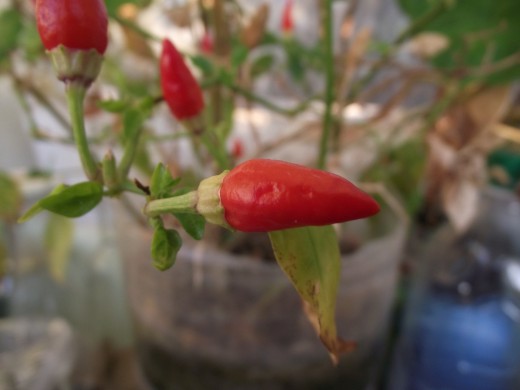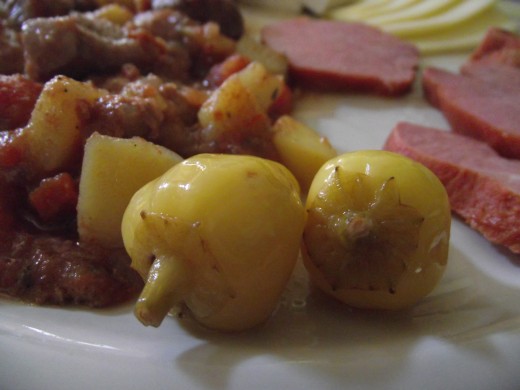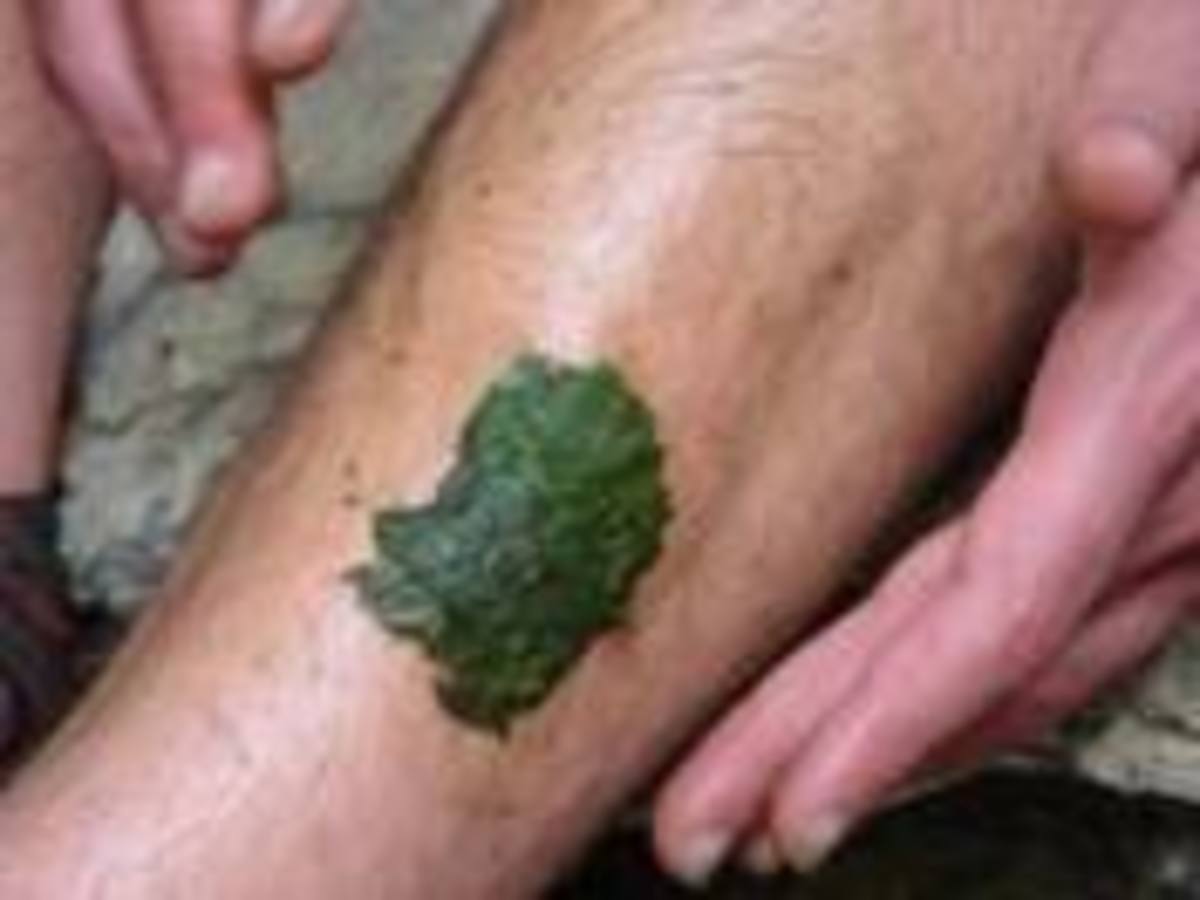If you don't like chili peppers - take them as a pill!

This sentence is quite true.
Let's have a look at Hunza, Pakistan. Imagine a valley full of people living 100 and more years. Dying of old age instead of poisons and disease. Still riding their horse in a polo game until they live.
Their menu?
- Hot peppers.
- Dried apricots and their seeds.
- Millet grains.
They more often die of injury or old age instead of sickness.
Hot peppers are actually very healthy. Mainly because of the capsaicin inside them.
Here are some more benefits:
- Capsaicin attacks energy making mitochondria of cancer cells. (good part is - healthy cells are spared)
- Capsaicin kills helicobacter pylori. Some forms of ulcer and gastritis are caused by this bacteria.
- Capsaicin patches help blood flow by increasing Nitric oxide, effectively normalizing blood pressure and protecting against heart disease.
- Capsaicin cures medium scale migraines or lessens migraine attacks.
- Medium strength aphrodisiac.
- Hot peppers are one natural remedy for the deadly yellow fever and other diseases thriving in hot climate.
The strong pungent taste of peppers is because of one alkaloid named capsaicin. This alkaloid was found by Christian Friedrich Bucholz at 1816. Its name was given 30 years later by John Clough Thresh. In 1878 Endre Hőgyes (a Hungarian doctor) found that capsaicin's hot taste does not just give burning sensation to the mouth but also increases the digestive fluids in the stomach. It is a very irritating alkaloid and some people may find it quite spicy even in dilution of half milligram per liter.

Diet
For centuries, the hot spicy food is present in the human diet and proven as a healthy and irreplaceable part of some cuisines. It can be much more hot than ginger, horseradish, onion, leak and garlic. Combined. That's why it is preferred in kitchen's worldwide - mainly South America, Asia and Africa.
Many archaeological dig sites confirm that Indian tribes in south America used wild hot peppers 7500 years BC. It is probably one of the first vegetables being domesticated.
Incas praised hot peppers as a holy plant. Aztec and Maya cultures were also growing many kinds of hot peppers. Overall, in South America, the hot pepper became part of the cuisine and remained in present days.
In Europe this vegetable comes first in Spain, carried by a historian participating in Columbus expeditions to the new world. Diego Álvarez Chanca - was a physician in the second Columbus expedition. He described the hot pepper benefits in a treatise.
After discovery, It took only few years for the hot spicy vegetable to reach all the known world. First Europe, then Asia and Africa.
A pure form of capsaicin was synthesized in lab by Е. Спат и Ф. Дарлинг in 1930. Later in the 60s of 20th century more compounds with similar properties (named capsaicinoids) were discovered in Japanese lab by С. Косуге и И. Инагаки. The most potent of them however stays capsaicin and dihydrocapsaicin. They both have double the power of all other compounds.
Why are they called healthy, when you cry and gasp for air when eating them?

Vitamins.
Hot peppers are the best source of vitamin C.
Just 3 small peppers = 1 kg lemons (2 pounds)
Analysis surprisingly shown that 3 small green hot pepper have as much vitamin C as in a bowl of ripe lemons. They are also very rich on other vitamins (А, В1, В2, В6, Е) and minerals (iron, potassium, calcium, magnesium, manganese, phosphorus). This could be the reason why many cultures with spicier hot cuisine are said to be more healthy than the average people in modern industrial west world.
The Phytoncides inside hot peppers strengthen the immune system against common cold and infections.
The most "vile" part of hot peppers are their internal ligaments where the seeds are attached.

Addiction.
Addiction to hot taste had been scientifically explained lately. Being "high" on hot peppers is actually possible. Capsaicin consumed from hot peppers can lead to euphoria. It irritates the tongue and the strong burning sensation sends strong pain signals to the brain. To ease the fire, your brain commands the pituitary gland to excrete endorphin.
There are other two hormones stimulated by capsaicin. Adrenaline and nor-adrenaline They are secreted when your organism is threatened by extreme danger. Also called "fight or flight" hormones. When you are under higher level of those - your heart rate increases, your senses sharpen and overall body metabolic rate peaks. That's why it is claimed that hot peppers are good for burning fat tissue and are widely advertised as ingredients of diet pills. Just read carefully. Most over-the-counter diet pills have powdered cayenne inside ;)
Scoville scale.
SHU (Scoville heat units) are named to Wilber Scoville. He proposed a subjective measurement system to rate pungency of the hot spicy foods. Extract from the food is diluted and given to 5 independent tasters. They tell if the solution is still pungent or not. Depending on the dilution ratio, they measure then SHU of the food. Pure capsaicin is said to be 15M SHU (can be felt in dilution ratio of 1 molecule in 15 million water molecules.)
In present days we can measure this much better without organoleptic test with degustation, but the units are still called SHU as a tribute to W. Scoville.
Naga Jolokia growing from a sprout to ready for ripe peppers.
Pepper
| Pungency in SHU
|
|---|---|
Pepper, bell pepper
| 0
|
Peperonchini
| 0 - 500
|
Jalapeno
| 2 500 - 10 000
|
Cayenne
| 30 000 - 50 000
|
Savina
| 240 000 - 250 000
|
Infinity chilli
| > 1 000 000
|
Naga Viper
| up to 1 300 000
|
Trinidad moruga
| >2 000 000
|
Pungency wars.
In the last 20 years, we observe a fully blown war for pungency. Different cultivators have triggered a real mania to provide much more hot and spicy peppers. Some enter Guinness book but are dethroned faster than lightning.
First was Havana's "Savina" with 580 000 SHU. It was surpassed by "Infinity chilly" with 1.17 million SHU. 2 weeks later "Infinty" was kicked by "Naga viper" with literally breathtaking 1.38 million SHU. And then "Trinidad scorpio" took over with 1.46 million SHU. This unique pepper is barely an inch long and is extremely strong for its size. It is grown in Australia and its cultivation is still a secret.
Regardless, current champion is "Trinidad moruga" with unsurpassed 2 million SHU.
Compared to the ordinary every day chili pepper with its 8000 SHU, this is quite extreme.
Even ordinary cayenne peppers are so strong that employees working with them to prepare ingredients for chili sauce are equipped with suits and masks suitable for chemical war.
Self defense.
Oleoresin capsicum (OC) is also used in self defense sprays (mace spray, pepper spray) in place of the older toxic substance Phenacyl chloride. It is made by extracting capsaicin from dried ground chilis and then evaporated. The remaining resin is used in pepper sprays.
The idea to use pungent cloud as defense is older than most present day countries. Around the shores of Orinoco at 1535 AD when Spain conquistadors invaded the land of Inca tribes, they were repelled by huge piles of burning chilies The pungent cloud was so strong, the army turned back running.







